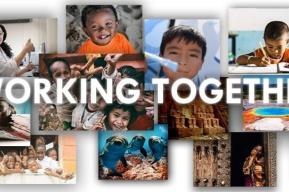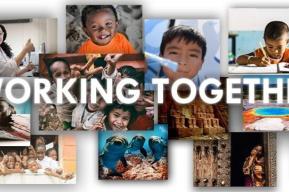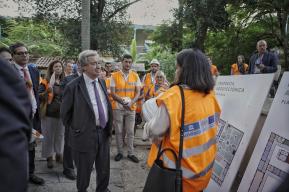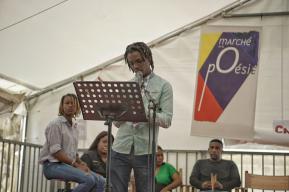© Courtesy Alejandro Yero
Early on, during his student days at the School of Journalism of the University of Havana, he began to express his vocation for audiovisual production. His studies at the International Film and Television School of San Antonio de los Baños marked a turning point in his career. The budding filmmaker has become one the most forceful voices in documentary filmmaking in Cuba. His graduation thesis at the Film School, Los viejos heraldos, was considered by film critics to be the best Cuban documentary shown in the country in 2018 and was awarded a Coral at the International Festival of the New Latin American Cinema. Today Luis Yero is the Coordinator of the Chair in Documentary Filmmaking at the School where he was formed as an audiovisual producer. In this interview, he reveals some of his experiences and views regarding his days as a student there.
Take us to one of your days at EICTV...
EICTV is sort of like a convent, and its students are an eccentric troop of devoted altar boys. The academic activities imposed a strict routine of work and classes, which at times could last up to 10 o'clock at night.
I would wake up around 8:30 in the morning. We would spend the morning in a classroom, or in a projection room, or filming, or editing, or writing in the dorm, depending on the workshop we were attending at the time.
How did your time at the School (most likely) change your views on art and life?
The main change was to realize that you must be strictly honest with yourself. Understand who you are, where you come from, what your deepest and most unspeakable wishes are. Learn from your fears and cynicism. And have the courage, self-discipline and sincerity to be willing to share, hoping that this will be echoed in others, or at least somebody. It is also important to play, keep safe, self-destroy (and destroy) when you’re overwhelmed with boredom. Be on the lookout and always find a way to survive. A few months ago, I wrote in my notes that directing is a matter of impulse. You must care about and listen carefully to those impulses. Always be generous, and understand that cruelty (your own, that of others) is sometimes inevitable, but never justifiable, and that you must prepare yourself. As Bergman would say, there is something intrinsically evil in our midst. Be fair, be fragile, be brave, be on the lookout. Always play.
Looking back, what do you appreciate most about what you experienced there?
Films, friends, lovers, having time to create, to go crazy, to get lost, to heal, to discover. A certain sentimental education.
The school has opted for a way of conceiving filmmaking that causes its graduates to produce works having certain characteristics in common, even in their diversity. What makes the School different from other film academies?
Its lifestyle and learning process, its political vocation, its commitment to our realities. People from all over the world building, learning, playing, getting lost, reconciling, making love, being generous with each other. People from the favelas, from megacities, from remote villages, from working-class families, intellectual families, aristocratic families, from cities by the sea or in the mountains or in the desert or in the tropics or near Siberia. All together speaking the common language of cinema, or a certain idea of cinema. It sounds like hippie fantasy, but it is not. As I already said in answer to your first question, a rigorous convent of eccentrics and devoted altar boys.
You have had a highly successful career. How much of what you learned there is part of that success?
I hate the word "success". To me it's just a matter of working very hard. And sometimes, I get tired. One of the things I learned there is to get some rest when you need it.
Since its founding, EICTV has graduated over 1,000 students from 60 countries across the world. The School of All the Worlds, as it is also known, will be one of the institutions in the Regional Cultural Training Hub of the Programme Transcultura: Integrating Cuba, the Caribbean and the European Union through Culture and Creativity, implemented by the UNESCO Regional Office for Culture in Latin America and the Caribbean, with the financial support of the European Union.













